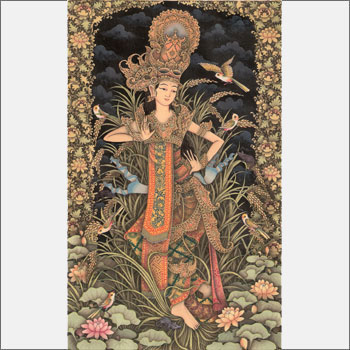 |
| Crowds at the Frankfurt Book Fair |
Frankfurt, the biggest
books fair and rights market in the world, is now underway. Last
year, in 2013, 451 Asian exhibitors attended, this year publishers and
agents from all over the region are there in force, and around 10,000 of the Fair’s
visitors are expected to be from Asia.
Many events on offer
have an Asian twist. Here’s a selection:
Chinese
Market with CNPIEC: this explains how Western publishers can explore
the Chinese market through exhibiting at the Beijing International Book Fair
(BIBF), and offers updates on the development of digital publishing in China. BIBF
is Asia's largest book fair, CNPIEC is the company that runs it.
Digital
Publishing in South East Asia: South East Asia has a
dynamic, young, literate population, and here digital is perhaps the future of
publishing, more so even than in the west. This event, run by the Indonesian Ministry of
Education and Culture, explores how publishing in Asia can benefit from the new
tools.
Markus
Nummi: Am Anfang ein Garten: The Finnish author Markus Nummi discusses
his novel Am Anfang ein Garten. This
is about love, loss and friendship, set in a missionary station in the Chinese
part of Turkestan with the desert, mountains, and Asian gods in the background,
and in the foreground a love story that begins in the year 1903 and continues
until the year 1941. The event is sponsored by Finland Cool. Finland is the
Fair’s guest of honour country this year.
Entering
Asian Markets Successfully. Hosted by the Taipei International
Book Fair, this panel will assemble experts from Korea, Thailand and Taiwan. They’ll
present the best ways Western publishers can enter the Asian book markets, with
a special focus on the Chinese language markets.
Dewi
Lestari on new trends in her writing. Dewi Lestari is one
of Indonesia’s foremost young authors, known for stylistic and formal innovation.
In this session she will give her opinions on the future of writing in
Indonesia in the digital age. Sponsored by the Ministry of Education and
Culture, Indonesia.
Plenty
yet to be done Against Child Labour and for Children’s Rights. Publisher
and photographer Lois Lammerhuber and multi-award winning photographer Hartmut
Schwarzbach in conversation about child labour and children’s rights. Schwarzbach has devoted his career to sophisticated
photo reportage on humanitarian and ecological issues. Since 2000 he has
focused his attention on children’s rights in Asia and Africa.
Next year,
in 2015, Indonesia will present its rich and diverse culture as the guest of honour in Frankfurt. This should make a big impact on the awareness of Asia as
a hotspot in the publishing world. In
preparation for this cultural exchange, Indonesian chef William Wongso will
demonstrate the art of cooking beef rendang, and also traditional
Indonesian appetizers and desserts. The demonstration is called Mysteries of the Flavours of Indonesia -
Part 1. Perhaps Part 2 will be next year?




